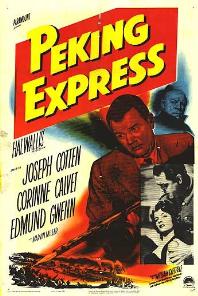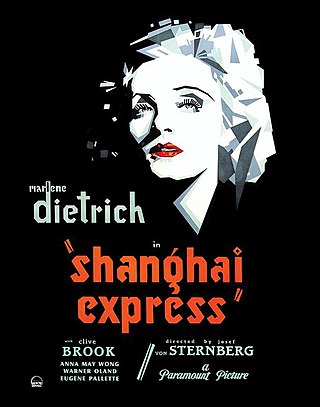
Shanghai Express is a 1932 American pre-Code film about a group of train passengers held hostage by a warlord during the Chinese Civil War. It was directed by Josef von Sternberg and stars Marlene Dietrich, Clive Brook, Anna May Wong and Warner Oland. The screenplay was written by Jules Furthman based on a 1931 short story by Harry Hervey. Shanghai Express was the fourth of seven films that Sternberg and Dietrich created together.
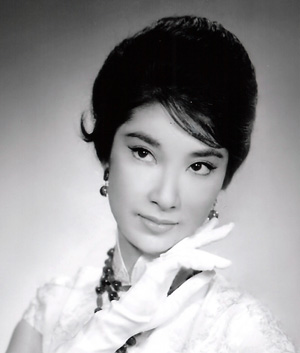
Betty Loh Ti, also known as Le Di or Loh Tih, was a Hong Kong actress originally from Shanghai. Known as the "Classic Beauty", she was one of the most celebrated actresses of Hong Kong cinema. She is most famous for her roles in the 1960 film The Enchanting Shadow, for which she was called "China's most beautiful actress" by the jury of the 1960 Cannes Film Festival, and The Love Eterne, which earned her the Golden Horse Award for Best Leading Actress in 1963. She died from barbiturate overdose at the age of 31.
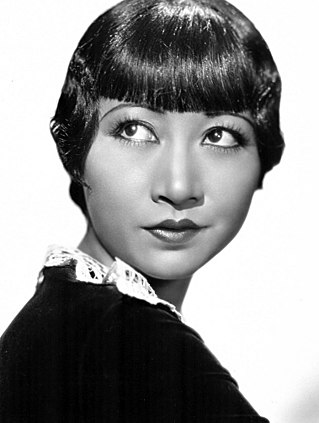
Wong Liu Tsong, known professionally as Anna May Wong, was an American actress, considered the first Chinese-American film star in Hollywood, as well as the first Chinese-American actress to gain international recognition. Her varied career spanned silent film, sound film, television, stage, and radio.

The Mummy: Tomb of the Dragon Emperor is a 2008 American action adventure fantasy film directed by Rob Cohen, written by Alfred Gough and Miles Millar, and produced by Stephen Sommers, Bob Ducsay, Sean Daniel, and James Jacks. The film is set in China rather than Egypt and focuses on the Terracotta Army's origins. It is the third and final installment in The Mummy trilogy. It stars Brendan Fraser, Jet Li, Maria Bello, John Hannah, Luke Ford, Anthony Wong, and Michelle Yeoh.
Joey Wong Cho-Yee is a Hong Kong based Taiwanese actress and singer. Along with Maggie Cheung, Rosamund Kwan and Cherie Chung, she was widely regarded as one of the ‘Four Flowers’ of Hong Kong cinema.
Corey Yuen is a Hong Kong film director, film producer, action choreographer, and former actor.

Jimmy Wang Yu was a Hong Kong-Taiwanese martial artist, actor, film director, producer, and screenwriter. Initially a contract player for Shaw Brothers, he rose to fame for his starring role in One-Armed Swordsman (1967) and its sequels, and was one of the first major stars of martial arts and wuxia cinema. At the height of his fame in the 1970s, he was the highest-paid martial arts actor in the world. According to The New York Times, Wang was "the biggest star of Asian martial arts cinema until the emergence of Bruce Lee."

Shek Wing-cheung, better known by his stage name Shih Kien, Sek Kin, or Sek Gin or Shek Kin(Chinese: 石堅; pinyin: Shí Jiān; Jyutping: Sek6 Gin1), was a Hong Kong–based Chinese actor and martial artist. Shih is best known for playing antagonists and villains in several early Hong Kong wuxia and martial arts films that dated back to the black-and-white period, and is most familiar to Western audiences for his portrayal of the primary villain, Han, in the 1973 martial arts film Enter the Dragon, which starred Bruce Lee.

Corinne Calvet, born Corinne Dibos, was a French actress who appeared mostly in American films. According to one obituary, she was promoted "as a combination of Dietrich and Rita Hayworth", but her persona failed to live up to this description, though the fault lay as much with a string of mediocre films as with a lack of a compelling talent, for Calvet's sultry looks and flashing eyes were allied with an impish sense of humour. She eventually became better known for her fiery private life and some well-publicised legal battles."
Kung fu film is a subgenre of martial arts films and Hong Kong action cinema set in the contemporary period and featuring realistic martial arts. It lacks the fantasy elements seen in wuxia, a related martial arts genre that uses historical settings based on ancient China. Swordplay is also less common in kung-fu films than in wuxia and fighting is done through unarmed combat.

The House of 72 Tenants (七十二家房客) is a 1973 Hong Kong film directed by Chor Yuen. It is a remake of a 1963 Chinese film of the same name. It was the top box office film of 1973 in Hong Kong, surpassing Bruce Lee's Enter the Dragon.
Taking Tiger Mountain by Strategy is a Peking opera play and one of the eight model plays allowed during the Chinese Cultural Revolution. The plot is based on parts of the popular novel Tracks in the Snowy Forest by Qu Bo, which in turn, is based on the real-life story of an incident in 1946 during the communist campaign to suppress bandits in northeast China in the Chinese Civil War, involving a PLA reconnaissance soldier Yang Zirong (杨子荣) who disguised himself as a bandit to infiltrate a local gang of bandits, eventually helping the main communist force destroy the bandits. Unlike other characters depicted in the opera and novel, most of the names of both the protagonists and the bandits are real.

Richard Loo was an American film actor who was one of the most familiar Asian character actors in American films of the 1930s and 1940s. He appeared in more than 120 films between 1931 and 1982.
Peking Express is a Dutch/Flemish reality game show.
The Shen Chong case, also referred to as the Peiping rape case, was a rape case in 1946 that sparked a nationwide anti-American movement in the Republic of China. It involved United States Marines stationed in China raping a Chinese university student in Peking (Beijing).

Shanghai 13, also known as The Shanghai Thirteen, is a 1984 Hong Kong-Taiwanese martial arts film written and directed by Chang Cheh and starring an ensemble cast of notable film stars such as Andy Lau, Jimmy Wang Yu, Ti Lung, Chen Kuan-tai, Danny Lee, Bryan Leung, David Chiang, Chiang Sheng, Chi Kuan-chun, Chan Sing, Lu Feng and more.
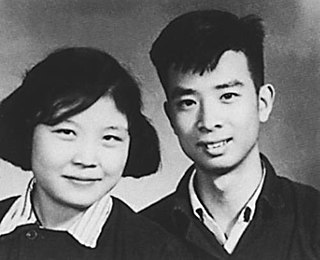
Tang Yijie was a Chinese scholar and professor at Peking University, who has been described as China's top scholar on philosophy and Chinese studies. He spearheaded the Confucian Canon project, seeking to compile all known classical works on Confucianism, and was the first director of the Institute of Confucian Studies at Peking University.
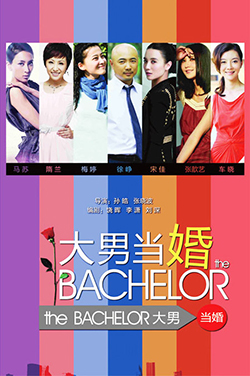
The Bachelor is a 2012 Chinese family television series produced by Yujia Shixing Pictures (御嘉世星影业).
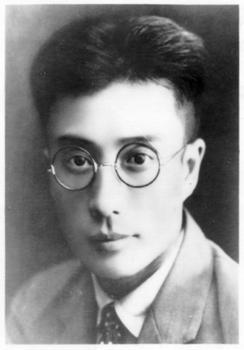
Qian Zhuangfei was a Chinese doctor, film director and Communist secret agent. After the Kuomintang (KMT) began its suppression of the Communists in 1927, Qian infiltrated the KMT secret service, and in 1931 intercepted a telegram reporting the arrest and defection of the Communist leader Gu Shunzhang. His quick reaction allowed the Communist leadership in Shanghai to evacuate, and he was credited with saving the lives of top leaders including Zhou Enlai, later the Premier of China. Zhou called Qian and his fellow agents Li Kenong and Hu Di "the three most distinguished intelligence workers of the Party." Qian was killed in 1935 during the Long March. He was the father of Li Lili, one of China's most popular film stars in the 1930s.
